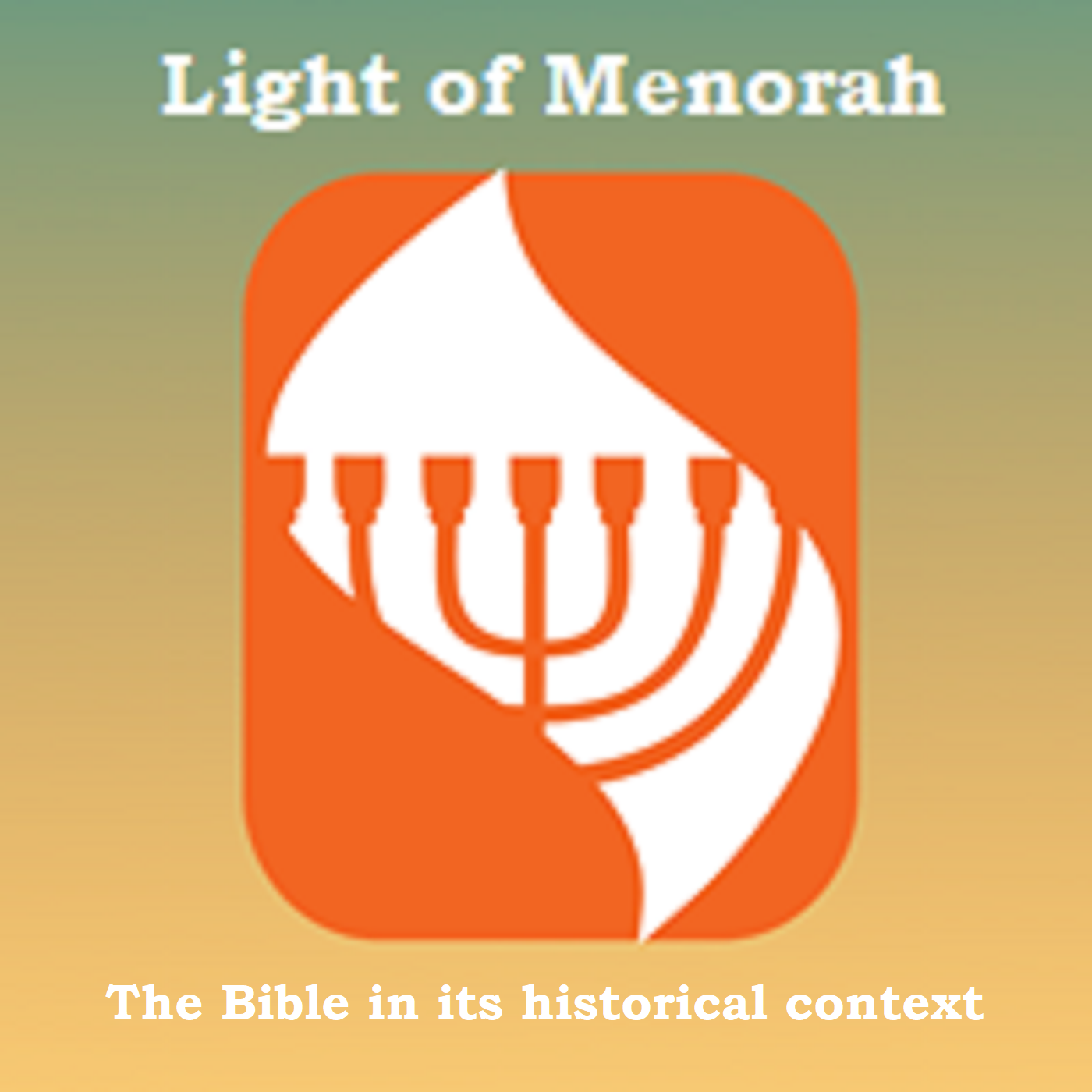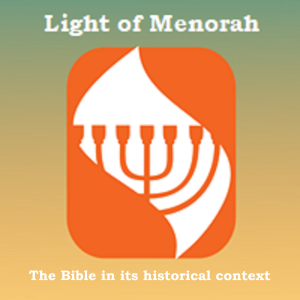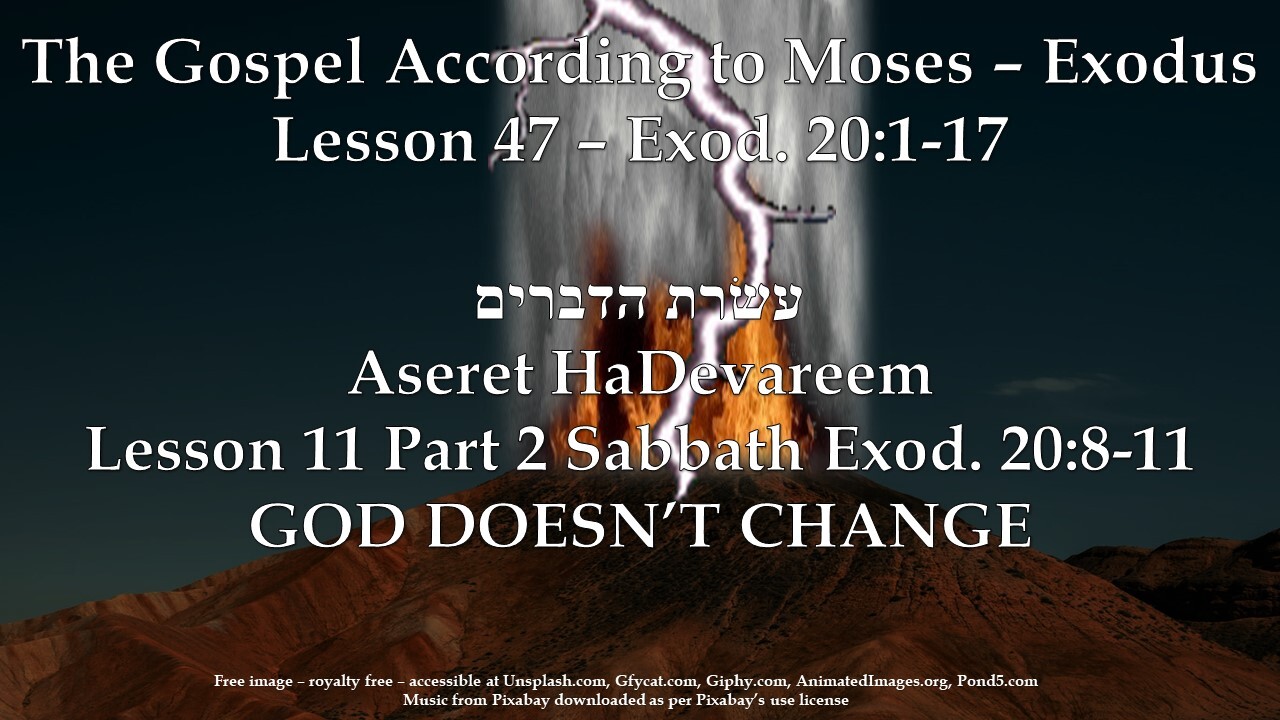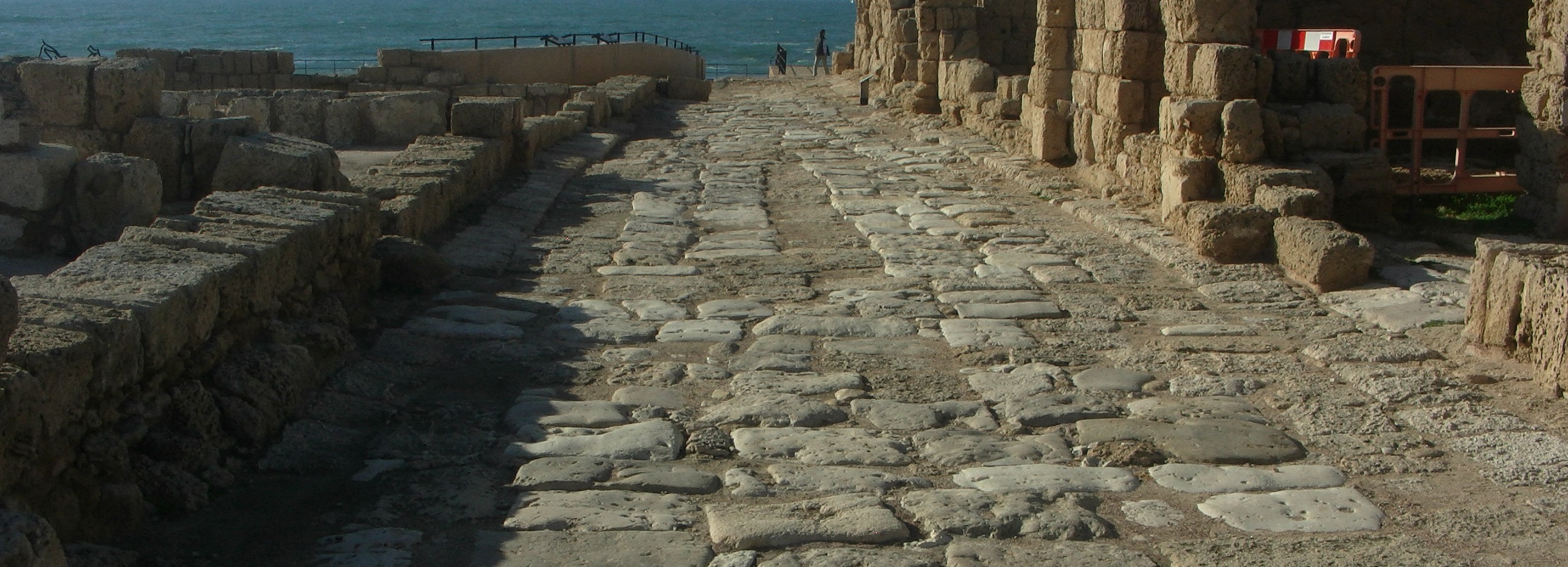
27.2K
Downloads
381
Episodes
The study of the Bible in its historical context - with a focus on the archaeology, history, geography, customs , culture, and even the languages of the ancient Middle East. WE ask what did they understand THEN - the original intent of the Lord - so that we can expand and enrich our understanding NOW and thus become true disciples of Adonai Yeshua as in John 8:31-32.
Episodes

Friday Jul 28, 2023
Friday Jul 28, 2023

Lesson 11 Part 2
The Bible was clearly meant for those the first ones to hear it. Like the Torah. It was meant for the Hebrews coming out of Egypt. The New Testament was written for the first disciples like John and Mark and Matthew and Paul and Mary. And once we understand what the "first hearers" heard and understood, we then an see how it relates to us. God gave them His word so they understood it and passed it down to us.
The Messianic Jewish believers lived in a Jewish culture 2000 years ago and they perhaps saw things and understood things a lot differently than us. So we will again put the Bible in its historical context. Once again we will study His word taking in account the ancient Jewish culture of those first disciples. When we do and study the GREEK and not the English, we find there is a compelling alternative understanding to verses that supposedly suggest Jesus changed everything. Contemporary theologians say that these verses show that Jesus changed the Sabbath from its Biblical practice to the way the "church" does it today. The three verses we will study are shown below taken from the NASB version. We will study these verses in their historical context. When we do the view that Jesus changed, God changed, is seriously challenged.
VERSE 1 - Now concerning the collection for the saints, as I directed the churches of Galatia, so do you also. On the first day of every week each one of you is to put aside and save, as he may prosper, so that no collections be made when I come. When I arrive, whomever you may approve, I will send them with letters to carry your gift to Jerusalem; (1Co 16:1-3)
VERSE 2 - On the first day of the week, when we were gathered together to break bread, Paul began talking to them, intending to leave the next day, and he prolonged his message until midnight. There were many lamps in the upper room where we were gathered together. And there was a young man named Eutychus sitting on the window sill, sinking into a deep sleep; and as Paul kept on talking, he was overcome by sleep and fell down from the third floor and was picked up dead. But Paul went down and fell upon him, and after embracing him, he said, "Do not be troubled, for his life is in him." When he had gone back up and had broken the bread and eaten, he talked with them a long while until daybreak, and then left. They took away the boy alive, and were greatly comforted. (Act 20:7-12)
VERSE 3 - I, John, your brother and fellow partaker in the tribulation and kingdom and perseverance which are in Jesus, was on the island called Patmos because of the word of God and the testimony of Jesus. I was in the Spirit on the Lord's day, and I heard behind me a loud voice like the sound of a trumpet, saying, "Write in a book what you see, and send it to the seven churches: to Ephesus and to Smyrna and to Pergamum and to Thyatira and to Sardis and to Philadelphia and to Laodicea." (Rev 1:9-11)
To continue your study on the Sabbath I strongly recommend the following books and resources ... (one's with * are a must)
* Kiesz, John. "A History of the Sabbath and Sunday." The Bible Sabbath Association (January 1, 1983). Free download at this link - http://www.truthontheweb.org/KieszHis...
Nichols, J. T. “The Origin of the Hebrew Sabbath.” The Old and New Testament Student, vol. 12, no. 1, 1891, pp. 36–42. JSTOR, www.jstor.org/stable/3157542
* Hay, Malcolm. "THE ROOTS OF CHRISTIAN ANTI SEMITISM." Available at Amazon.
Dr. Shumel Safrai, “The Jewish People in the First Century: Historical Geography, Political History, Social, Cultural and Religious...Vols. 1 and 2.”
* Bacchiocchi, Samule. "From Sabbath to Sunday." (1977) Rome, Italy. Pontifical Gregorial University Press. Free download at this link - http://www.anym.org/pdf/from_Sabbath_...
Encyclopedia Judaica. 1972. Keter Publishing. Jerusalem:Israel.
"Feasts and the Holidays, the Mo’edim." https://hebrew4christians.com/Holiday...
Flusser, David. "Judaism and the Origins of Christianity." 1988. Magness Press. Jerusalem.
Hayyim, Schauss. "The Jewish Festivals." © 1938
"The Jewish Encyclopedia." www.jewishencyclopedia.com
Levine, Lee. 2005. "The Ancient Synagogue: the First Thousand Years." 2nd Edition. New Haven: Yale University Press.
* Stern, David. Jewish New Testament Commentary. 1996. Jewish New Testament Publications. Clarksfield:Maryland.
Stern, David. The Complete Jewish Bible. 1998. Jewish New Testament
* Wilson, Marvin. Our Father Abraham. 1989. W.B. Eerdman’s. Grand Rapids:MI. Contours of Hebrew Thought.
Finally, here's a link to a chapter of one of my books I did for my classes. The content is based upon the sources above. Link - https://www.dropbox.com/s/qdycam9yad7... A second link is related to Paul meeting in Troas on the FIRST DAY OF THE WEEK. Here's the link - https://www.dropbox.com/s/rmkqxbq18k3...
Rev. Ferret - who is this guy? What's his background? Why should I listen to him? Check his background at this link - https://www.dropbox.com/s/ortnret3oxcicu4/BackgrndTeacher%20mar%2025%202020.pdf?dl=0

No comments yet. Be the first to say something!